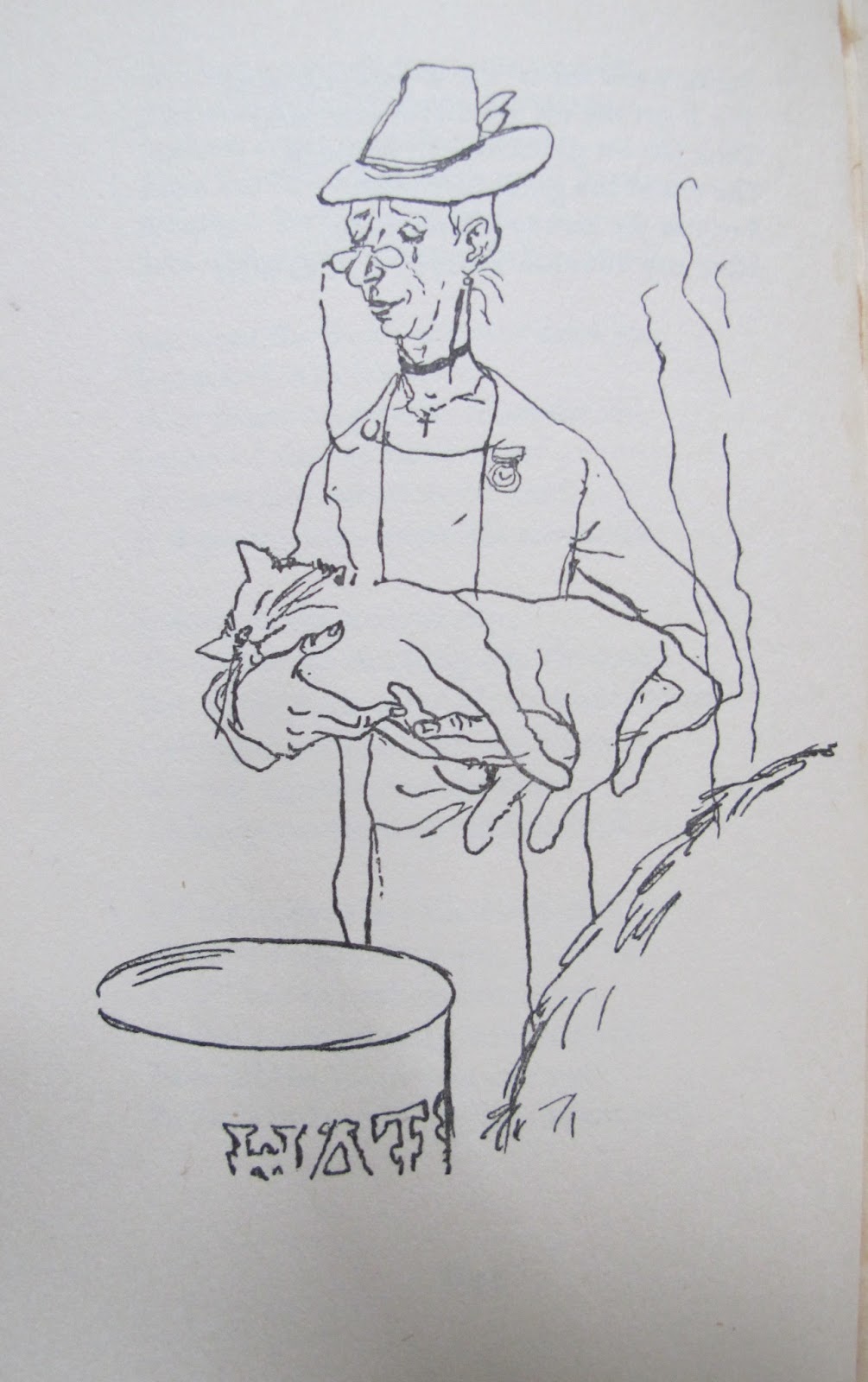 |
| Miss Twigg: The Compost-Heap |
I am surrounded by stacks of old gardening books trying to figure out which of hundreds of tidbits and treasures from these old books to include in a one hour presentation I’m putting together.
The question I am pondering is whose pithy little quote about composting to include, as shouldn’t every presentation about gardening mention the benefits of composting?
Should I pull some tidbit from Pay Dirt: Farming and Gardening with Composts by J. I. Rodale (1945)? Or perhaps I should provide more practical advice by Ida D. Bennett from her book, The Flower Garden (1910).
Or maybe I will share the treasure of poetry about compost, written by Ruth Pitter and published in her book of poems, The Rude Potato (London: The Crosset Press, 1941).
I’m not much of a poetry reader but when there is a poem about compost, I will make an exception.
Miss Twigg is out to win the war
By all the means she may;
She rakes the parish, near and far,
For all that can decay;
With a thankful smack on the juicy stack
She adds to it each day.
Her finer feelings she will sink
In maiden sacrifice;
She does not blench, she does not blink,
But patriotric tries
Bravely to think the compost stink
Is really rather nice.
With all the clippings of the grass,
And leaves from every tree,
She swells the richly-festering mass
Almost in revelry,
And adds a spot of you-know-what
And a little oh-dear-me.
She finds the oddest things to add,
(Especially at night),
A cabbage that is really bad
Is glorious in her sight,
An ancient boot, a mouldy fruit
Is just exactly right.
And with the heap her passion grows,
And every sense invades;
She goes to pluck each fullblown rose
Almost before it fades;
When her own stuff is not enough
She makes nocturnal raids.
But at her big tom-cat’s demise
She felt her bosom racked:
His germs, his nitrogen, his grease
Were what her treasure lacked,
But a friend’s peace after decease
She felt should be intact.
But still she could not bear the waste;
So in a dress-box fair
The remnant of her pet she placed,
And then interred him there,
Satisfied then his nitrogen
A good result would bear.
Her heap is now memorial
To Tibby and her love;
A wreath adorns each several wall,
A big one lies above;
In the rich bed above his bed
Is stuck a plaster dove.
Ah friends who plough and friends who dig
Tough clay or blowing sand,
Don’t laugh at good old Ethel Twigg,
But give a helping hand;
I wish that all could feel the call
To help neglected land!
Following this poem in her book, Pitter made note that “While admiring Miss Twigg’s practical enthusiasm, we feel bound to point out that her management of her compost-heap could be improved”.
With the deepest respect and greatest admiration for my English teachers, I humbly offer the following discussion questions to help all of us make sense of this poem:
1) How could Miss Twigg’s composting be improved (i.e. what would you suggest she do to keep it from smelling)?
2) What items did Miss Twigg add to her compost that she perhaps should not have? (Hint, her deceased cat and boots would be a good start of a list of what not to compost.)
3) What do you think “oh-dear-me” and “you-know-what” might have been?
Finally,
4) What does this poem teach us about over zealous activities in composting?
I’m not sure I’ll use this poem in my presentation, but I’ll commit to memory the last stanza because I do believe that everyone should have a compost pile somewhere in their garden:
Ah friends who plough and friends who dig
Tough clay or blowing sand,
Don’t laugh at good old Ethel Twigg,
But give a helping hand;
I wish that all could feel the call
To help neglected land!
Thank you to Ruth Pitter for memorializing composting through poetry. I think I’ll now refer to my compost piles as “Ethel Twigg’s Delight”.


I'll try to answer the questions when I stop laughing…Love the poem and do agree, Ethel Twigg's Delight is a perfect name for your compost pile.
I remember my father telling me that my grandfather had buried a cat underneath the grape vine in the greenhouse. This may have been about the time that this book went into print.
Is Ruth Pitter's entire book full of garden poems? I think that is quite an achievement.
Whoa! She has put it delicately, Ms. Pitter, but let's call a fish a fish, or a horse a horse, and so on. I recall attending an Hydrangea class where the instructor stated that the reason the hydrangeas grew so very well in that area was that it was an old civil war battleground with soldiers and horses long ago buried beneath the ground, feeding the flowers. We have *planted* fish in the veggie gardens with the same results.
Frances
Is that not why our dog doth lie
Beneath an apple tree?